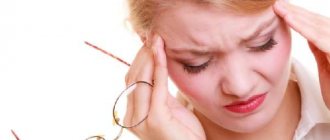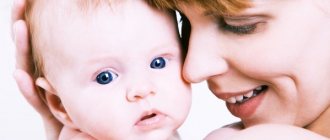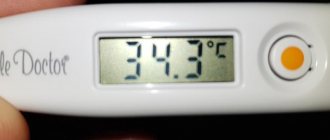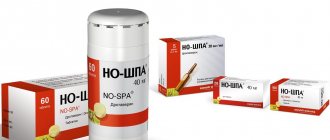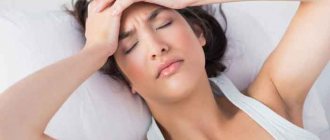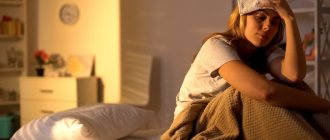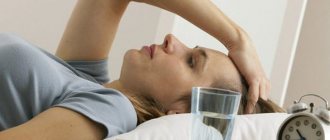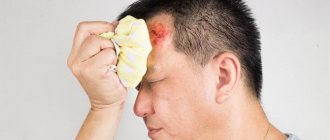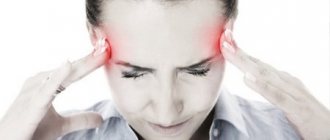Cost of services
| TREATMENT OF DEPRESSION, NEUROSIS | |
| NAME OF SERVICE | price, rub. |
| Consultation with a therapist (observation) | 3,000 rubles |
| Consultation with a neurologist (observation) | 3,000 rubles |
| Consultation with a psychologist | 2,000 rubles |
| Psychiatrist consultation | 5,000 rubles |
| Consultation with the head of the department | 4,500 rubles |
| CONSULTATIONS, INITIAL INSPECTION | |
| NAME OF SERVICE | price, rub. |
| Telephone consultation | For free! |
| Telephone consultation for relatives | For free! |
| Initial consultation with a psychiatrist-narcologist in a hospital | For free! |
| Initial consultation with a psychologist by phone | For free! |
| Visit of a narcologist and consultation at home | 1,500 rubles |
| Consultation with a psychotherapist, psychologist in the clinic | 2,000 rubles |
| Initial appointment, examination by a doctor, cubital catheter, ECG | 2,500 rubles |
| Consultation with a therapist, neurologist, surgeon | 3,000 rubles |
| Family consultation with a psychologist | 3,000 rubles |
| Psychiatrist consultation | 4,000 rubles |
| Consultation with the head of the department | 4,500 rubles |
| PROMOTIONS AND DISCOUNTS | |
| When applying again | 5% discount on treatment |
| Disabled people and war veterans | 5% discount on treatment |
| Large families | 10% discount on treatment |
* Dear patients! The administration tries to promptly update the price list posted on the website, but in order to avoid possible misunderstandings, we ask you to clarify the cost of services on the day of your call by calling 24/7.
The posted price list is not an offer.
Psychotherapeutic treatment
Treatment of neurasthenic headaches should begin by using the principles of psychotherapy. There are several methods of such influence. Persuasion treatment involves instilling information that can change the perception of a traumatic factor. Another effective method is treatment by suggestion. Unlike the first method, information is entered independently of consciousness, i.e. it is not subjected to critical analysis, but is perceived as a signal to action.
The psychological impact of neurosis can be direct or indirect. With the direct method, the psychotherapist directly acts on the receptors through suggestion. The essence of the indirect technique is the use of an additional stimulus. Hypnotic sleep and self-hypnosis sessions are widespread. In any case, during psychotherapeutic sessions it is not the pain syndrome that is treated, but the immediate cause - the neurosis itself.
What causes and how do neurological headaches manifest?
Depending on the cause of the pathology, the following types of neurogenic headaches are identified:
- Pain syndrome caused by impaired blood circulation in the arteries of the brain. It often occurs in the back of the head and is pulsating and compressive in nature. Among the accompanying complaints, nausea with vomiting, severe weakness, attacks of darkening in the eyes and flashing “flies” predominate.
- Painful sensations that are provoked by prolonged tension of a certain muscle group. They are caused by a prolonged and uncomfortable position; the pain itself resembles tightening the head with a hoop.
- Pain caused by problems in the cervical spine. Infringement of nerve fibers and arteries, which is caused by pathology of intervertebral discs, tissue proliferation, osteophytes, causes severe pain.
- Hypoxic – the result of being indoors or in conditions where the air is depleted of oxygen (crowding, closed and poorly ventilated space).
- Migraine is a severe, paroxysmal headache with an unclear cause.
- Pain due to neuroses, neurasthenia, hypochondria and other mental pathologies.
Other causes of cephalalgia
Since people suffering from neuroses are ordinary people, they may have other reasons for headaches that are not related to psychogenic disorders.
- Arterial hypertension.
- Osteocondritis of the spine.
- Atherosclerosis of cerebral vessels.
- Infectious diseases.
- Brain tumors.
- Severe chronic anemia.
- Diseases of the eyes and ENT organs.
- Dental disease and inflammation of the cranial nerves.
The causes of headaches can be very diverse.
Such diseases require specific treatment and are often diagnosed late in patients against the background of psychogenic symptoms. Therefore, if a person with psychogenic disorders often and persistently has a headache, it is necessary to undergo a course of examination to exclude other causes of cephalgia. As a rule, most organic diseases that can manifest as cephalalgia can be easily diagnosed by examination by a neurologist, as well as magnetic resonance imaging.
How to get rid of neurogenic headaches
The effectiveness of treatment for neurological headaches largely depends on the correct determination of the cause and nature of the pain. Cerebral circulation disorders require the use of blood pressure normalizing agents, diuretics, sedatives, and antioxidants. Complexes selected by doctors quickly eliminate both pain and its cause. Pain caused by muscle strain is relieved by massage, physical therapy, and physiotherapy. Treatment of headaches from compression of nerves and blood vessels is carried out using painkillers. Acupuncture and manual techniques are very effective in this case. Problems caused by brain hypoxia can be eliminated by access to fresh air, room ventilation, and breathing exercises. Migraine requires treatment with a specific selection of medications and the use of laser therapy.
Susceptibility to NG: risk groups, prevention
Head neuroses affect people regardless of age, gender, or social status. The only proven fact: such problems are often experienced by emotionally excitable individuals who react violently to external and internal stimuli. Reflective, sensitive, creative natures, painfully perceiving failures, constantly worrying, are the goals of the disease.
Today, a frightening trend has emerged: cephalic neurosis affects young people, teenagers, and children. Increasing social pressure, inflated demands, richness, and complexity of educational programs provoke the development of various neurological abnormalities. Prevention:
- engaging in fruitful, distracting activities - hobbies, creativity;
- communication, maintaining trusting relationships with parents, friends, significant others;
- maintaining an active, healthy lifestyle – sports, dancing, swimming;
- proper nutrition, exclusion of heavy, fatty, junk foods;
- compulsory daytime walks, daily exposure to fresh air, out-of-town trips;
- practicing recognized spiritual practices - yoga, meditation, martial arts;
- maximum adherence to the daily routine, long night sleep (from 8 hours, go to bed until 23.00).
Compliance with the listed preventive measures will help avoid cerebral neurosis, strengthen the nervous system, and give the body the necessary relaxation. Learn to control your own reactions, emotions, feelings in order to effectively defeat such illnesses.
Acupuncture and laser therapy used in medical treatment for various types of headaches
Acupuncture and laser acupuncture are among the most important reflexology techniques. Thanks to their effect, pain impulses are suppressed and the threshold of excitability of pain receptors increases, caused by the normalization of the balance of pain modulators and mediators: norepinephrine, opiates, serotonin. In addition, the effect on biologically active points inhibits pathological processes that contribute to the development of headaches of various etiologies: with its help it is possible to relieve pathological tension in the head muscles, dystonia of extracranial and cerebral vessels, and reduce other pathogenic processes. Acupuncture and laser acupuncture are great for:
- migraine;
- vascular headache with cerebral angiodystonia, vegetative-vascular dystonia, regional cerebral hypotension, venous hypotension, hypertension, atherosclerosis;
- muscle tension headache;
- facial pain in psychopathy.
Other reasons
Household
Psychological
Physiological
The cause of neuroses is the action of a psychotraumatic factor or a psychotraumatic situation. In the first case, we are talking about a short-term but strong negative impact on a person, for example, the death of a loved one.
In the second case, we talk about the long-term, chronic impact of a negative factor, for example, a family conflict situation. Speaking about the causes of neurosis, it is psychotraumatic situations and, above all, family conflicts that are of great importance.
However, both factors and situations will cause painful and painful experiences. The inability to find a productive way out of a conflict situation leads to mental and physiological disorganization of the individual, which is manifested by mental and physical symptoms.
- family and household factors and situations;
- interpersonal conflicts;
- intrapersonal (interpersonal) conflicts;
- derived factors;
- death of loved ones;
Family factors and situations
Let's look at the main reasons why the scalp under the hair hurts:
- All problems are caused by nerves - this is exactly what many doctors say. Here they are right - strong neuromuscular excitability affects scalp pain. Mental and physical injuries contribute to the activation of nerve cells and, as a result, signs of pain appear;
- Hairstyle. And this reason can cause pain on the skin. A ponytail that is pulled too tightly or clips that are too tight can cause problems. Headgear and bandages may also cause pain. But such factors depend on the severity of the hair. The lighter they are, the easier it is;
- Cosmetics and hygiene products. If you wash your hair too often with different shampoos and conditioners, this can also become stressful and manifest itself as pain. Masks and other cosmetics should be applied with caution. To prevent problems, you need to use natural-based or time-tested hair shampoos. Combs should be considered made of wood and natural ones;
- Got a cold. Cold weather may also be a reason. Often, without a hat, the scalp suffers from low air temperatures and can end up hurting;
- Lack of vitamins. This is especially true during periods of exacerbation: spring and autumn. During these months, you should take vitamins and supplements to replenish the missing supply of essential substances in the body.
Since people suffering from neuroses are ordinary people, they may have other reasons for headaches that are not related to psychogenic disorders.
Dizziness is one of the most common symptoms in various neurological and mental diseases. Dizziness due to neurosis can manifest itself differently in each person. This symptom cannot be left without attention and treatment, since first of all it signals possible malfunctions in the functioning of the central nervous system.
Symptoms of dizziness with VSD
The most common symptoms of dizziness in vegetative-vascular dystonia and neurosis are:
- feeling of confusion;
- a feeling of unreality of what is happening, which is accompanied by “fog” in the head;
- loss of clarity of vision and blurriness of surrounding objects.
Additional symptoms that often accompany dizziness with VSD are:
- increased blood pressure;
- an inexplicable feeling of fear and anxiety;
- cardiopalmus;
- chest pain;
- trembling in hands;
- shortness of breath (feeling of lack of air);
- apathy
Household or cosmetic
To find out exactly the cause of the severity or headache, the doctor prescribes certain tests and other examinations, including:
- Encephalogram.
- CT.
- MRI.
- X-ray of the head.
- Blood chemistry.
Separately, you may need to consult with specialized specialists: ophthalmologist, ENT specialist, cardiologist.
Headache due to neurosis and neurasthenia: treatment with psychotherapeutic techniques
A special group that requires special treatment are headaches due to neurosis and neurasthenia. The nature of neurotic pain is very diverse and presents some difficulties in diagnosis. Patients describe a wide variety of complaints, which sometimes mislead the doctor.
Treatment of headache symptoms due to neurosis and neurasthenia, in addition to drug therapy, necessarily includes techniques aimed at working through the initial neurotic conflict. In this case, both psychotherapeutic methods and psychoanalytic practice can be used to help relieve neurotic tension and identify the causes of the painful accumulation of such tension.
Our specialists have all the necessary knowledge and extensive experience to help provide effective treatment for neurological headaches in the shortest possible time! Just dial +7 (495) 744-85-28!
The text was checked by expert doctors:
Head of the socio-psychological service of the Alkoklinik MC, psychologist Yu.P. Baranova, L.A. Serova, a psychiatrist-narcologist.
CAN'T FIND THE ANSWER?
Consult a specialist
Or call: +7 (495) 744-85-28
Call! We work around the clock!
Treatment
Since headaches in patients with various forms of neuroses are psychogenic in nature and have no organic causes, effective treatment of such conditions is possible only in combination with treatment of the underlying disease. Often the pain goes away on its own, without treatment, if the patient takes action and eliminates the underlying cause supporting the disease. Sometimes for this a person has to change his life radically.
Woman consulting with a psychiatrist
Patients who cannot or do not want to change something are treated with tranquilizers and antidepressants. They must be selected by a neurologist or psychiatrist, since this group of drugs is quite extensive and, if used incorrectly, can cause significant harm and progression of the symptoms of the disease.
Analgesics do not relieve the symptoms of psychogenic cephalgia well, therefore, if the patient is aware of his illness, and the attack is associated with a specific emotional situation, you can independently take sedatives containing extracts of medicinal plants (valerian, motherwort, novopassit). Many people benefit from a relaxing massage or a fragrant hot bath. Treatment with physical activity is effective, since during sports, endorphins are produced, which have an analgesic effect and also improve mood.
Neurovascular type of headache
If the headache is of a neurovascular nature, then it is characterized by pain of a pulsating nature. Patients note pulsation in the head and tapping in the temples. This condition is often permanent and inaccessible. In addition, it occurs regardless of the time of day. The localization of pain is the temporal region, the occipital and frontal parts are relatively calm. Nausea and dizziness sometimes accompany this condition. These symptoms are described especially vividly by patients with hysteria.
Causes of the disease
The cause of neurosis, as a rule, is a constant state of nervous overstrain of a person. As a result, the body's resistance to stressful situations decreases. The extreme expression of the disease is hysteria, screaming, nervous breakdown or neurasthenia, as a result of which people can even end up in the hospital. It is necessary to remember that all organs in a person are interconnected, so overloading the nervous system leads to problems not only with it, but also with other organs, including long-term headaches.
Scientists identify the following as the causes of the disease:
- Various strong shocks in life. They can be both pleasant (the long-awaited purchase of an apartment, entering a university or college, a wedding) and unpleasant (for example, the loss of a loved one).
- Characteristics of a person. Cholerics and melancholics are more susceptible to neuroses than other types. Due to the presence of emotional instability, they take any shock to heart, which leads to overstrain of the nervous system.
- High pace of life and, as a result, violation of the work and rest regime. When a person works a lot and constantly strives to improve his results, he does not have time to relax and recuperate, which leads to problems in the nervous system.
- Psychological problems. If you fail to achieve some goal or result for a long time, this can also lead to neurosis, and therefore headaches.
Folk remedies for relieving tension in the head due to neurosis
- Take a bath with lavender before bed. The proportions should be as follows: for 1 liter of boiling water – 50 grams of plant. First, an infusion is prepared, then added to the bath. Has a calming and relaxing effect.
- You can also add various oils to the bath - chamomile, mint, orange or jasmine. On average, 5 to 10 drops at a time are enough.
- A positive effect is also achieved with the help of a fragrant pillow. You can even make it yourself - just put herbs in a canvas bag that have a relaxing and calming effect - mint, hop cones, lavender, and so on. The prepared pillow should be placed next to the place where you sleep, which will ensure maximum effect.
- It is also recommended to take tea or herbal decoction before bed, which has a calming and relaxing effect.
As a result of neurosis, constant headaches can develop. For the most part, they are oppressive in nature. They can be removed either by drug treatment, which can best be prescribed by a doctor, or by folk remedies (soothing decoctions and baths) and by changing your lifestyle to a calmer one.
